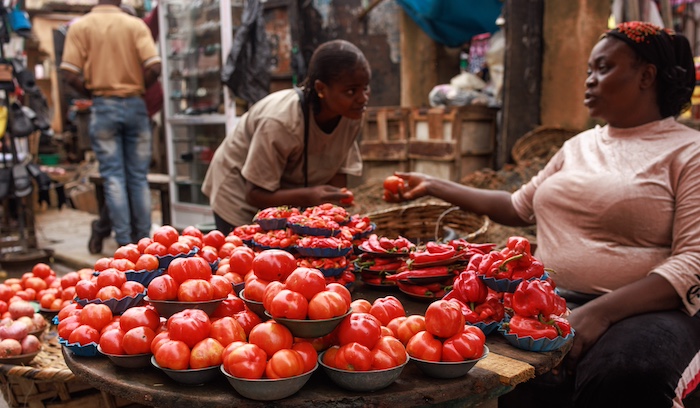The Nigerian federal government is reportedly considering a range of fiscal measures to address the worsening food crisis and rising inflation that have pushed food prices beyond the reach of many citizens. A high-ranking official from the presidency confirmed these plans to THISDAY, indicating that suspension of taxes and duties on certain food items could be part of the strategy to mitigate the impacts of ongoing economic reforms.
While specific details of the measures were not provided, the official emphasized the government’s concern over food prices and assured that a formal announcement would be made soon. Reports have circulated that the government has already approved duty-free tariffs on some food items, a claim that a presidential spokesman, Bayo Onanuga, acknowledged as partially true, noting that policy measures are still under deliberation.
According to a document obtained by THISDAY, the Minister of Agriculture and Food Security, Senator Abubakar Kyari, outlined a comprehensive plan known as the Presidential Accelerated Stabilization and Advancement Plan, aimed at achieving food security and economic stability. The plan addresses the escalating cost of food items, which has resulted in severe affordability issues for many Nigerians. Food inflation, currently at 40.66%, has driven up prices of essential items such as yam, plantain, and potato to levels unaffordable for most citizens.
Kyari highlighted various factors contributing to food inflation, including agricultural production challenges due to insecurity, infrastructural issues, multiple taxes, and market profiteering. He outlined immediate and long-term measures to stabilize food prices and increase food availability, including the release of food commodities from national reserves and support for agricultural production.
Key measures to be implemented over the next 180 days include:
- Duty-Free Import Window: A 150-day suspension of duties, tariffs, and taxes on the importation of specific food commodities such as maize, husked brown rice, wheat, and cowpeas.
- Importation of Food Commodities: The federal government plans to import 250,000 metric tonnes each of wheat and maize to support small-scale processors and millers.
- Guaranteed Minimum Price: Setting a Guaranteed Minimum Price (GMP) for surplus food commodities to restock the National Strategic Food Reserve.
- Agricultural Mechanization and Development: Initiatives to reduce production costs and increase productivity, including rehabilitating irrigation facilities and promoting greenhouse cultivation.
- Strategic Engagements: Collaborating with the Nigerian military and other paramilitary establishments to cultivate arable lands and enhance livestock development.
The National President of the Nigerian Association of Chambers of Commerce, Industry, Mines, and Agriculture (NACCIMA), Dele Oye, commended the government’s decision to suspend duties and tariffs on key food commodities. He noted that the 150-day duty-free import window would help stabilize food prices and provide relief to Nigerians. However, he emphasized the importance of engaging with stakeholders to ensure that Nigeria does not become a dumping ground for commodities where the country already has reasonable self-sufficiency. Oye reiterated the need to protect local investments and sustain the growth of Nigeria’s agricultural sector.
As the government works to finalize and implement these measures, it remains committed to addressing the food security challenge and ensuring that Nigerians do not go hungry. The success of these initiatives will depend on the cooperation and collaboration of all relevant stakeholders.
